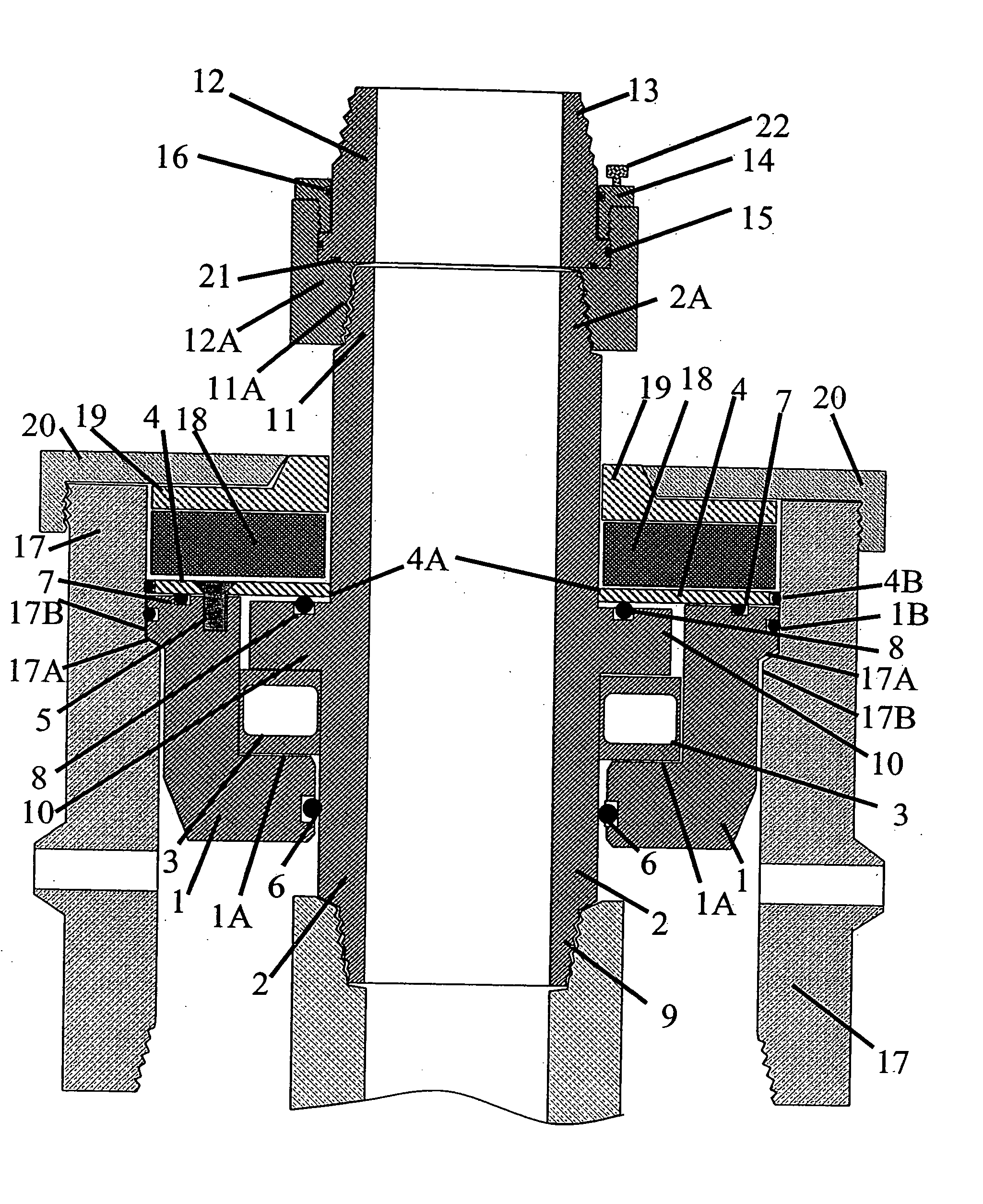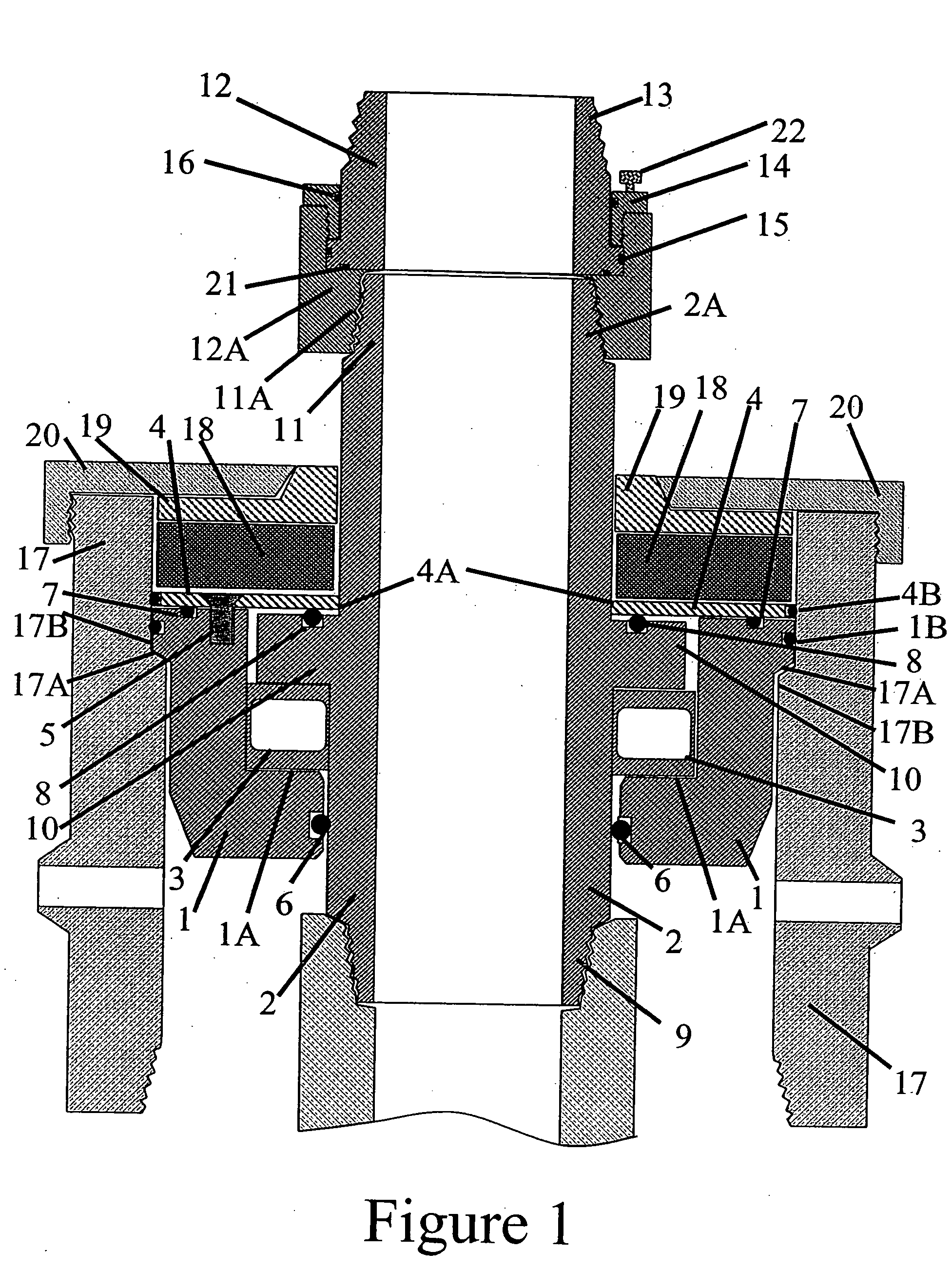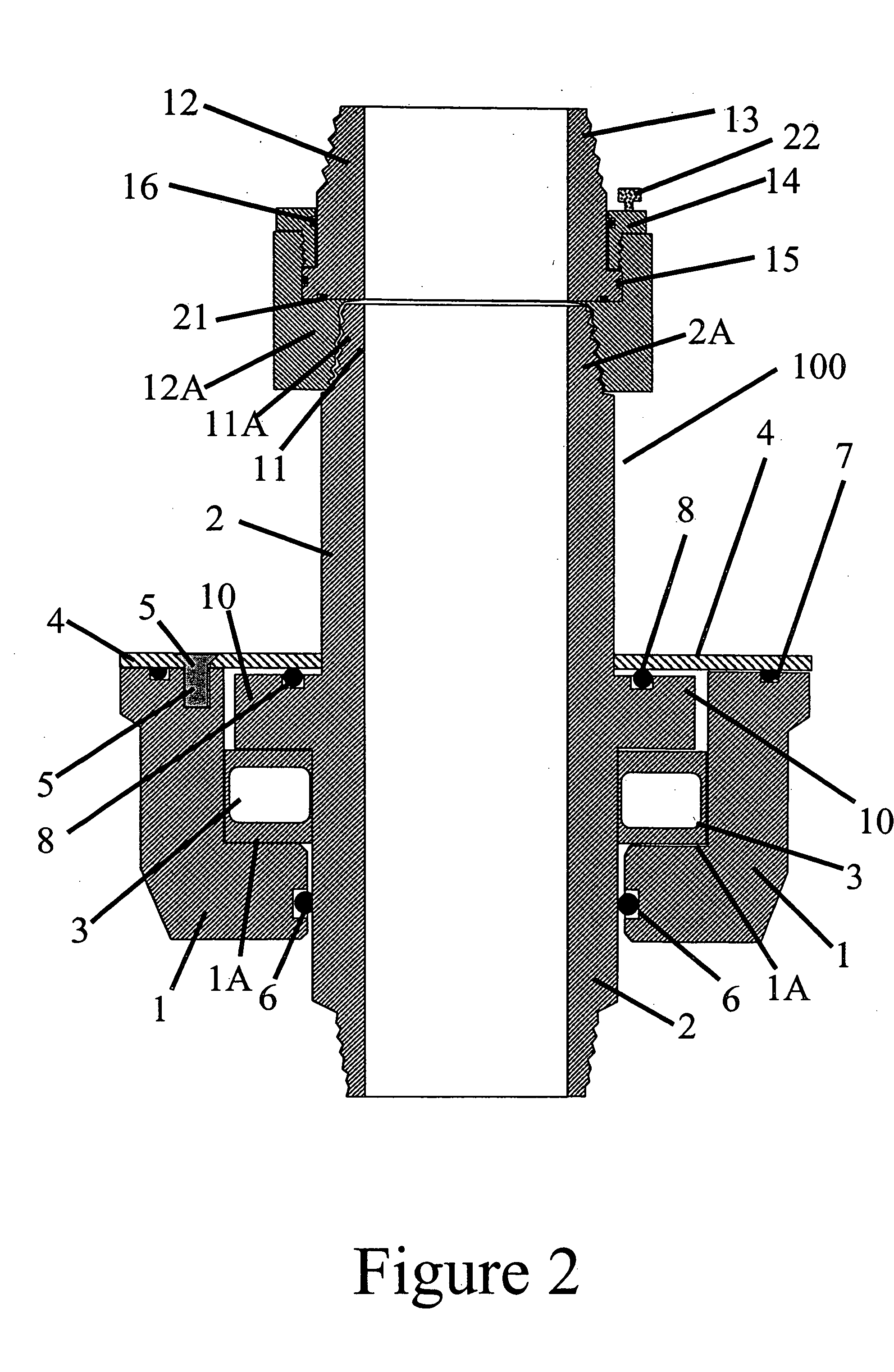Tubing saver rotator and method for using same
a rotator and tube technology, applied in the direction of drilling casings, drilling pipes, well accessories, etc., can solve the problems of tubing string wear, tubing holes, inefficient lifting or no lifting of fluids to the surface, etc., to minimize corrosion or contamination, and improve the pull strength of tubing
- Summary
- Abstract
- Description
- Claims
- Application Information
AI Technical Summary
Benefits of technology
Problems solved by technology
Method used
Image
Examples
Embodiment Construction
[0025]FIGS. 1-4 illustrate a preferred embodiment of a tubing saver rotator assembly 100 made in accordance with the present invention. Generally, the present invention is an apparatus for attachment in an existing casing head or a casing head modified to accept a bowl or ledge assembly. This apparatus having a surface, such as a bearing in which a tubing mandrel rests and allows one to rotate the tubing above the wellhead. It provides a low profile reducing the distance between the casing head and the pumping tee, which may eliminate the need for one to raise the pumping unit to fit on the rotator. In addition, the conventional seals above the bowl assembly have less chance of leaking fluids located between the casing and tubing due to the seals potentially installed in the present invention. In addition, if the conventional seals do start to leak, one can change the sealing elements without having to remove the pump tee, tubing rotator assembly 100 or tubing string (not shown) fro...
PUM
 Login to View More
Login to View More Abstract
Description
Claims
Application Information
 Login to View More
Login to View More - R&D
- Intellectual Property
- Life Sciences
- Materials
- Tech Scout
- Unparalleled Data Quality
- Higher Quality Content
- 60% Fewer Hallucinations
Browse by: Latest US Patents, China's latest patents, Technical Efficacy Thesaurus, Application Domain, Technology Topic, Popular Technical Reports.
© 2025 PatSnap. All rights reserved.Legal|Privacy policy|Modern Slavery Act Transparency Statement|Sitemap|About US| Contact US: help@patsnap.com



